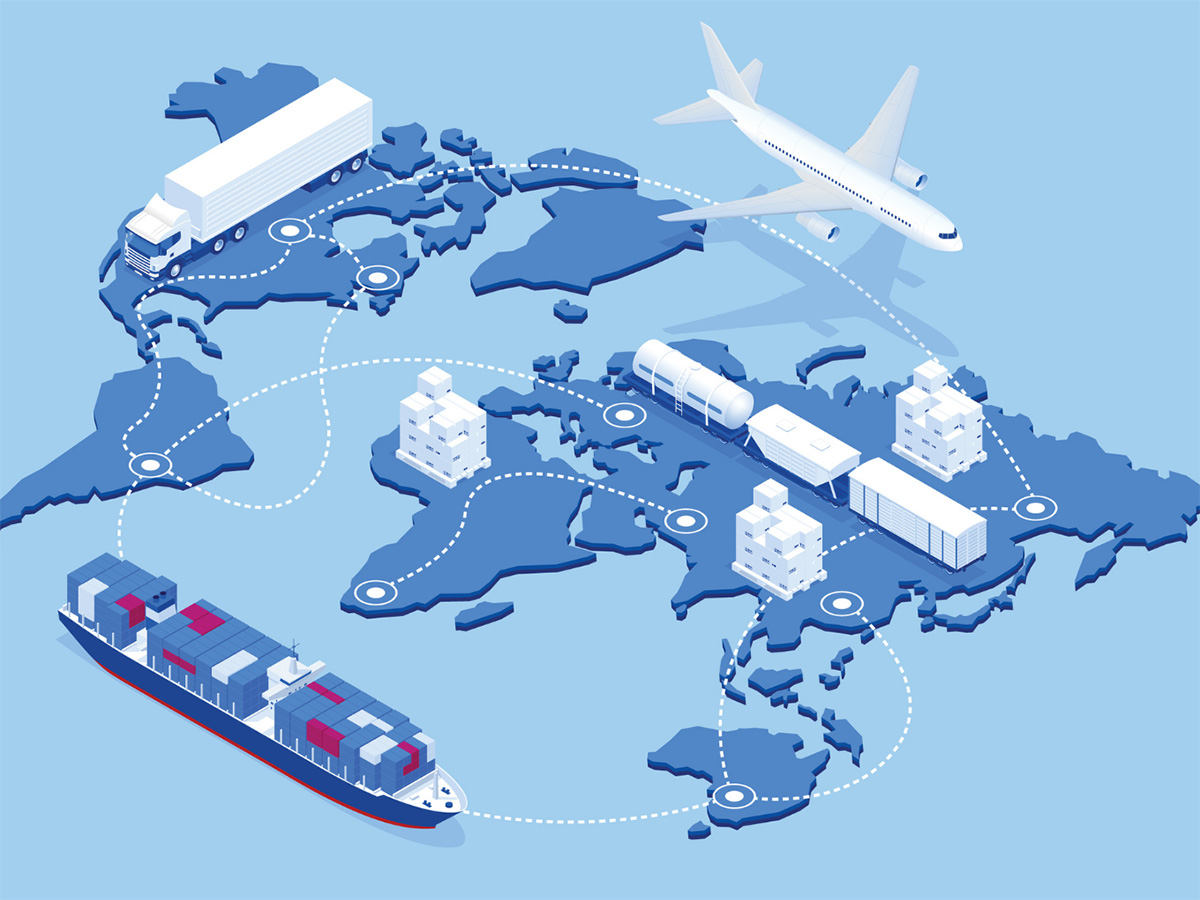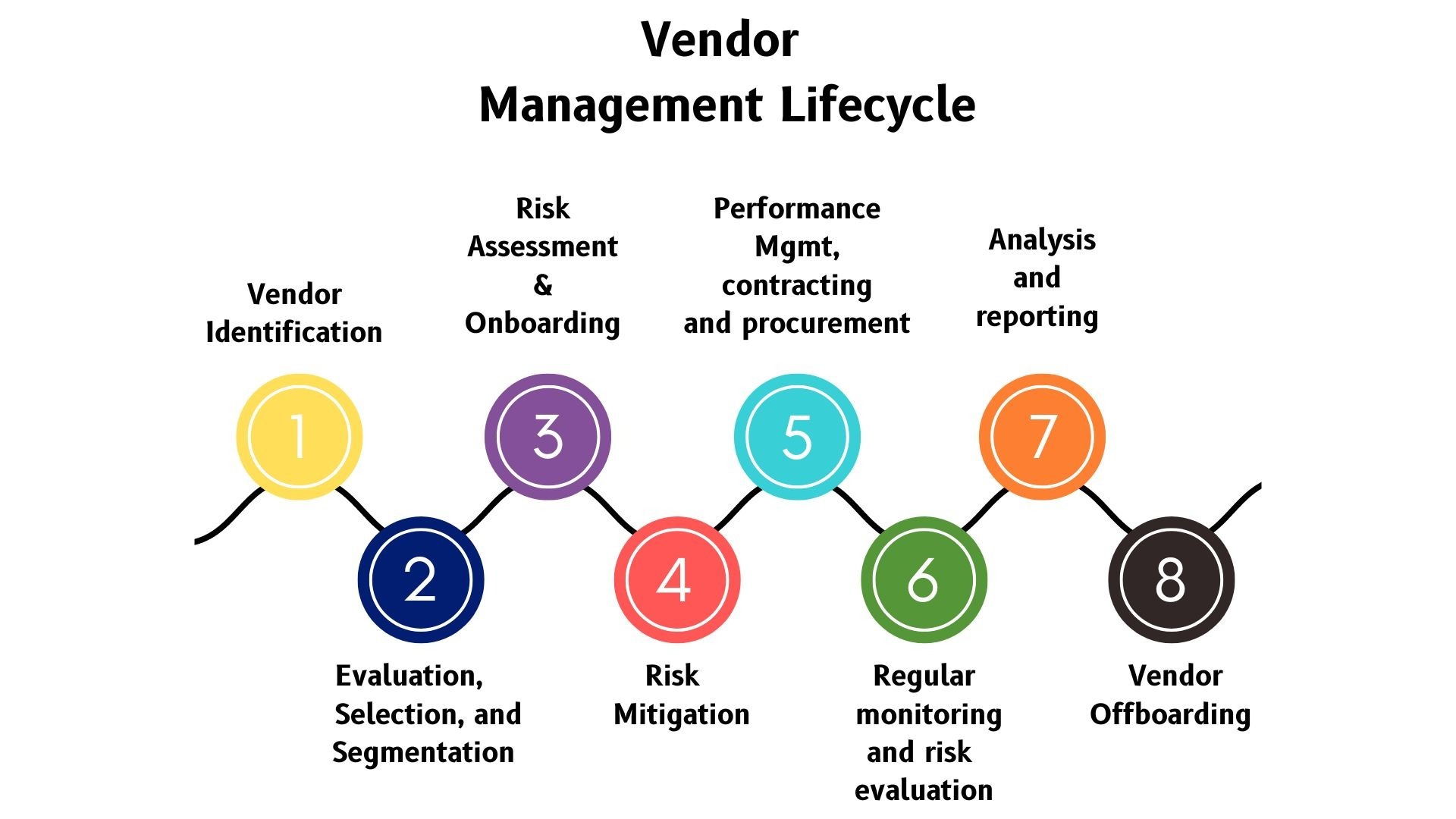

Finance
What Does A Supply Chain Coordinator Do?
Published: October 20, 2023
Discover the role of a Supply Chain Coordinator in the finance industry. Learn about their responsibilities, skills, and how they contribute to managing and optimizing supply chain operations.
(Many of the links in this article redirect to a specific reviewed product. Your purchase of these products through affiliate links helps to generate commission for LiveWell, at no extra cost. Learn more)
Table of Contents
Introduction
When it comes to ensuring smooth operations and efficient processes in the world of logistics, supply chain coordinators play a vital role. They are the behind-the-scenes heroes responsible for coordinating and managing the flow of goods and services from the initial production stage to the final delivery. A supply chain coordinator acts as a link between suppliers, manufacturers, distributors, and retailers, ensuring that all parties work together seamlessly to meet customer demands. Their expertise in logistics, inventory management, and problem-solving allows businesses to optimize their supply chain and achieve operational excellence.
Supply chain coordinators have a multifaceted role that requires both analytical and interpersonal skills. On one hand, they need to analyze data and make strategic decisions to improve efficiency and reduce costs. On the other hand, they must collaborate with various stakeholders, including suppliers, transportation providers, and internal teams, to ensure a smooth flow of goods. It is a dynamic and challenging position that requires a strong attention to detail, excellent communication skills, and the ability to adapt to changing circumstances.
In this article, we delve into the job responsibilities, required skills, educational qualifications, and salary outlook for supply chain coordinators. Whether you are considering a career in supply chain management or looking to hire a supply chain coordinator for your business, this guide will provide valuable insights into the role and its significance in the world of logistics.
Job Description
A supply chain coordinator plays a crucial role in managing and coordinating the various aspects of the supply chain process. They are responsible for ensuring the smooth flow of goods, from procurement to delivery, while optimizing costs and maintaining quality standards. Supply chain coordinators closely monitor inventory levels, track shipments, and resolve any issues or delays that may arise during the transportation and delivery process.
One of the primary responsibilities of a supply chain coordinator is to manage the procurement process. This involves identifying and selecting suppliers, negotiating contracts, and ensuring that the necessary materials or products are available in the required quantities and within the specified timeframe. They work closely with suppliers to establish mutually beneficial relationships, evaluate supplier performance, and address any issues that may affect the supply chain.
In addition to procurement, supply chain coordinators are also responsible for inventory management. This includes forecasting demand, monitoring inventory levels, and implementing strategies to optimize stock levels and minimize wastage. They must ensure that all inventory data is accurately recorded and maintained in the company’s systems to facilitate efficient order fulfillment and minimize stockouts or excess inventory. Supply chain coordinators also analyze historical data and market trends to make informed decisions regarding inventory planning and replenishment.
Another important aspect of the role is transportation and logistics management. Supply chain coordinators work closely with transportation providers to schedule and track shipments, ensuring that goods are delivered on time and in the most cost-effective manner. They may need to coordinate multiple modes of transportation, such as air, sea, and land, depending on the nature of the goods and the locations involved. They also handle any customs or regulatory requirements, ensuring compliance with international trade regulations.
Furthermore, a supply chain coordinator is responsible for analyzing and improving the overall efficiency and effectiveness of the supply chain. This involves identifying areas for improvement, implementing process enhancements, and utilizing technology and automation to streamline operations. They may collaborate with cross-functional teams, such as production, sales, and customer service, to identify and address any bottlenecks or issues within the supply chain.
In summary, a supply chain coordinator is a key contributor to the overall success and profitability of a business by ensuring the smooth flow of goods throughout the supply chain process. Their responsibilities encompass procurement, inventory management, transportation coordination, and process improvement. With their expertise, organizations can achieve cost optimization, customer satisfaction, and operational excellence.
Responsibilities
A supply chain coordinator is responsible for overseeing and managing various tasks and processes to ensure the efficient functioning of the supply chain. The specific responsibilities may vary depending on the size and complexity of the organization, but here are some common responsibilities often associated with the role:
- Procurement: Collaborating with suppliers to identify and select vendors, negotiating contracts, and ensuring timely delivery of goods and services.
- Inventory Management: Monitoring inventory levels, conducting regular stock checks, and implementing strategies to optimize stock levels and minimize holding costs.
- Order Fulfillment: Processing and tracking orders, ensuring accurate and timely delivery, and resolving any order-related issues that may arise.
- Transportation Coordination: Collaborating with transportation providers to schedule shipments, arrange logistics, and track the movement of goods to ensure on-time delivery.
- Supplier Relationship Management: Building and maintaining relationships with suppliers, evaluating supplier performance, identifying areas for improvement, and resolving any issues that may impact the supply chain.
- Data Analysis: Analyzing supply chain data, such as inventory levels, demand forecasts, and transportation costs, to identify trends, make informed decisions, and optimize processes.
- Process Improvement: Identifying inefficiencies or bottlenecks within the supply chain and implementing process enhancements to improve efficiency, reduce costs, and enhance overall performance.
- Risk management: Assessing and mitigating risks that may impact the supply chain, such as disruptions in supply, transportation delays, or quality issues.
- Communication and Collaboration: Collaborating with various stakeholders, including suppliers, internal teams, and customers, to ensure effective communication and coordination throughout the supply chain.
- Compliance: Ensuring compliance with relevant regulations, such as international trade laws, safety regulations, and ethical sourcing practices.
These responsibilities require excellent organizational skills, attention to detail, problem-solving abilities, and effective communication. A supply chain coordinator must be able to juggle multiple tasks, prioritize workload, and adapt to changing circumstances to ensure the smooth and efficient functioning of the entire supply chain.
Skills and Qualifications
To excel as a supply chain coordinator, certain skills and qualifications are essential. While specific requirements may vary depending on the organization and industry, here are some key skills and qualifications typically sought after for this role:
- Analytical Skills: A supply chain coordinator must possess strong analytical skills to analyze data, identify patterns, and make data-driven decisions. They should be able to extract insights from complex data sets and utilize tools and software for data analysis and visualization.
- Organizational Skills: The ability to manage multiple tasks, prioritize workload, and meet deadlines is crucial for a supply chain coordinator. They must be highly organized and detail-oriented to ensure the smooth flow of goods and services throughout the supply chain.
- Problem-Solving Abilities: Supply chain coordinators encounter various challenges and issues that require quick thinking and problem-solving skills. They should be able to analyze problems, identify root causes, and develop effective solutions to minimize disruptions and optimize processes.
- Communication Skills: Effective communication is essential for a supply chain coordinator to collaborate with stakeholders across the supply chain, including suppliers, internal teams, and customers. They should be able to articulate their ideas clearly, actively listen to others, and convey information effectively.
- Technical Competence: Proficiency in using supply chain management software, enterprise resource planning (ERP) systems, and other relevant tools is beneficial for a supply chain coordinator. They should also have a good understanding of inventory management principles, logistics operations, and procurement processes.
- Adaptability: The supply chain industry is constantly evolving, and a supply chain coordinator should be able to adapt to changing circumstances and embrace new technologies and processes. They should have the flexibility and willingness to learn and upgrade their skills to stay ahead in the field.
- Negotiation Skills: The ability to negotiate effectively is important for a supply chain coordinator when dealing with suppliers, transportation providers, and other stakeholders. They should be able to negotiate favorable terms, resolve conflicts, and achieve mutually beneficial agreements.
- Attention to Detail: Precision and attention to detail are crucial in supply chain management to ensure accuracy in inventory management, order processing, and logistics coordination. A supply chain coordinator should have a keen eye for detail to avoid errors and minimize risks.
In terms of qualifications, most employers require at least a bachelor’s degree in supply chain management, logistics, or a related field. Additionally, industry certifications such as Certified Supply Chain Professional (CSCP) or Certified Professional in Supply Management (CPSM) can demonstrate a candidate’s knowledge and commitment to the field.
Overall, a successful supply chain coordinator possesses a combination of technical skills, interpersonal skills, and industry knowledge. By leveraging these skills and qualifications, they can effectively manage the complexities of the supply chain and drive organizational success.
Education and Training
To pursue a career as a supply chain coordinator, a solid educational foundation in supply chain management or a related field is highly beneficial. While specific educational requirements may vary depending on the organization and industry, here are some common educational qualifications for this role:
1. Bachelor’s Degree: Many employers prefer candidates with a bachelor’s degree in supply chain management, logistics, business administration, or a related field. This degree provides a solid understanding of supply chain principles, logistics operations, procurement strategies, and inventory management.
2. Master’s Degree: While not always required, a master’s degree in supply chain management or a related field can provide a competitive edge in the job market. A master’s degree offers a deeper understanding of advanced supply chain concepts, strategic planning, and data analysis.
3. Industry Certifications: Obtaining industry certifications can showcase expertise and dedication to the field. Certifications such as Certified Supply Chain Professional (CSCP), Certified Professional in Supply Management (CPSM), or Certified Logistics Professional (CLP) are valuable credentials that demonstrate proficiency in supply chain management practices.
In addition to formal education, ongoing training is essential for supply chain coordinators to stay updated with industry trends, emerging technologies, and best practices. This can be achieved through various means, including:
1. Professional Development Programs: Enrollment in professional development programs, workshops, or seminars related to supply chain management can provide valuable insights and knowledge enhancement. These programs typically offer specialized training in specific areas of supply chain coordination, such as procurement, inventory management, or logistics operations.
2. Online Courses: Online platforms offer a wide range of courses related to supply chain management and logistics. These courses allow individuals to learn at their own pace and gain knowledge in specific areas of interest or areas that require improvement.
3. Industry Conferences and Events: Attending industry conferences, trade shows, and networking events can provide opportunities to learn from experts, share experiences, and gain exposure to the latest developments in the field. These events often feature workshops, panel discussions, and keynote presentations on relevant supply chain topics.
4. On-the-Job Training: Many supply chain coordinators gain practical training and experience by working in entry-level positions within supply chain departments. This on-the-job training allows individuals to gain hands-on experience in various aspects of supply chain management, from procurement to inventory control and logistics coordination.
Continuing education and training not only enhance skills and knowledge but also demonstrate commitment to professional growth in the field of supply chain coordination. Employers value individuals who stay current with industry trends and are continuously improving their expertise.
Salary and Career Outlook
The salary of a supply chain coordinator can vary depending on factors such as the industry, company size, location, experience, and educational qualifications. However, supply chain coordination is generally considered a lucrative field with strong career prospects.
In the United States, the median annual salary for supply chain coordinators is around $60,000, according to data from the Bureau of Labor Statistics. Entry-level positions may start at lower salaries, while experienced professionals or those in managerial roles can earn significantly higher salaries.
Opportunities for career advancement are abundant in the supply chain field. Starting as a supply chain coordinator, one can progress to higher-level positions such as supply chain manager, logistics manager, or operations manager. With additional experience and expertise, professionals can even aspire to senior executive roles such as director of supply chain or vice president of logistics.
The demand for supply chain coordinators and professionals is expected to remain strong in the coming years. As businesses continue to expand their operations globally, there is a growing need for efficient supply chain management to ensure the timely and cost-effective delivery of goods. Additionally, the adoption of technologies such as automation, artificial intelligence, and data analytics is transforming the supply chain industry, creating new opportunities for professionals with the right skills.
Further boosting the career outlook for supply chain coordinators is the increasing recognition of the importance of supply chain optimization in achieving competitive advantage and customer satisfaction. Businesses are realizing that a well-structured and effectively managed supply chain can contribute to cost savings, improved operational efficiency, and enhanced customer experience.
Moreover, the supply chain industry offers opportunities across different sectors, including manufacturing, retail, e-commerce, healthcare, and logistics. This versatility allows supply chain coordinators to explore various industries and gain exposure to different supply chain challenges and solutions.
To stay competitive in the job market and advance in their career, supply chain coordinators can continue to enhance their skill set, pursue advanced certifications, and stay updated with the latest industry trends and technologies. The ability to adapt to changing supply chain dynamics, embrace innovation, and demonstrate strong leadership and problem-solving skills can further enhance career prospects in this field.
Overall, a career as a supply chain coordinator offers an exciting and rewarding path with ample opportunities for growth, competitive salaries, and a strong demand in the job market. With the right qualifications, skills, and dedication, individuals can build a successful and fulfilling career in supply chain coordination.
Conclusion
Supply chain coordinators are the unsung heroes in the world of logistics. Their role is essential in ensuring the efficient flow of goods and services from suppliers to end consumers. By coordinating and managing the different aspects of the supply chain, they play a crucial part in optimizing operational efficiency, reducing costs, and enhancing customer satisfaction.
Throughout this article, we have explored the responsibilities, skills, and qualifications required for a supply chain coordinator. From procurement and inventory management to transportation coordination and process improvement, supply chain coordinators handle various tasks with precision and attention to detail.
Education and training play significant roles in preparing individuals for a career in supply chain coordination. A bachelor’s degree in supply chain management or a related field, along with industry certifications, can provide a strong foundation. Ongoing professional development and staying up-to-date with the latest industry trends and technologies are equally important for career advancement.
The salary and career outlook for supply chain coordinators are promising. With increasing globalization, evolving supply chain practices, and the use of technology, the demand for supply chain professionals is expected to rise. Opportunities for career growth, from managerial positions to executive roles, abound in various industries.
In conclusion, supply chain coordination is a dynamic and fulfilling career path that requires a blend of analytical skills, organizational abilities, and effective communication. By efficiently managing the supply chain process, supply chain coordinators contribute to business success, customer satisfaction, and overall operational excellence.
Whether you are considering a career in supply chain management or seeking to hire a supply chain coordinator for your organization, understanding the responsibilities and qualifications of this role is essential. By harnessing the expertise and skills of a supply chain coordinator, businesses can optimize their supply chain operations and gain a competitive edge in today’s fast-paced global marketplace.














